by Mike Brunel | Aug 17, 2021 | Sales
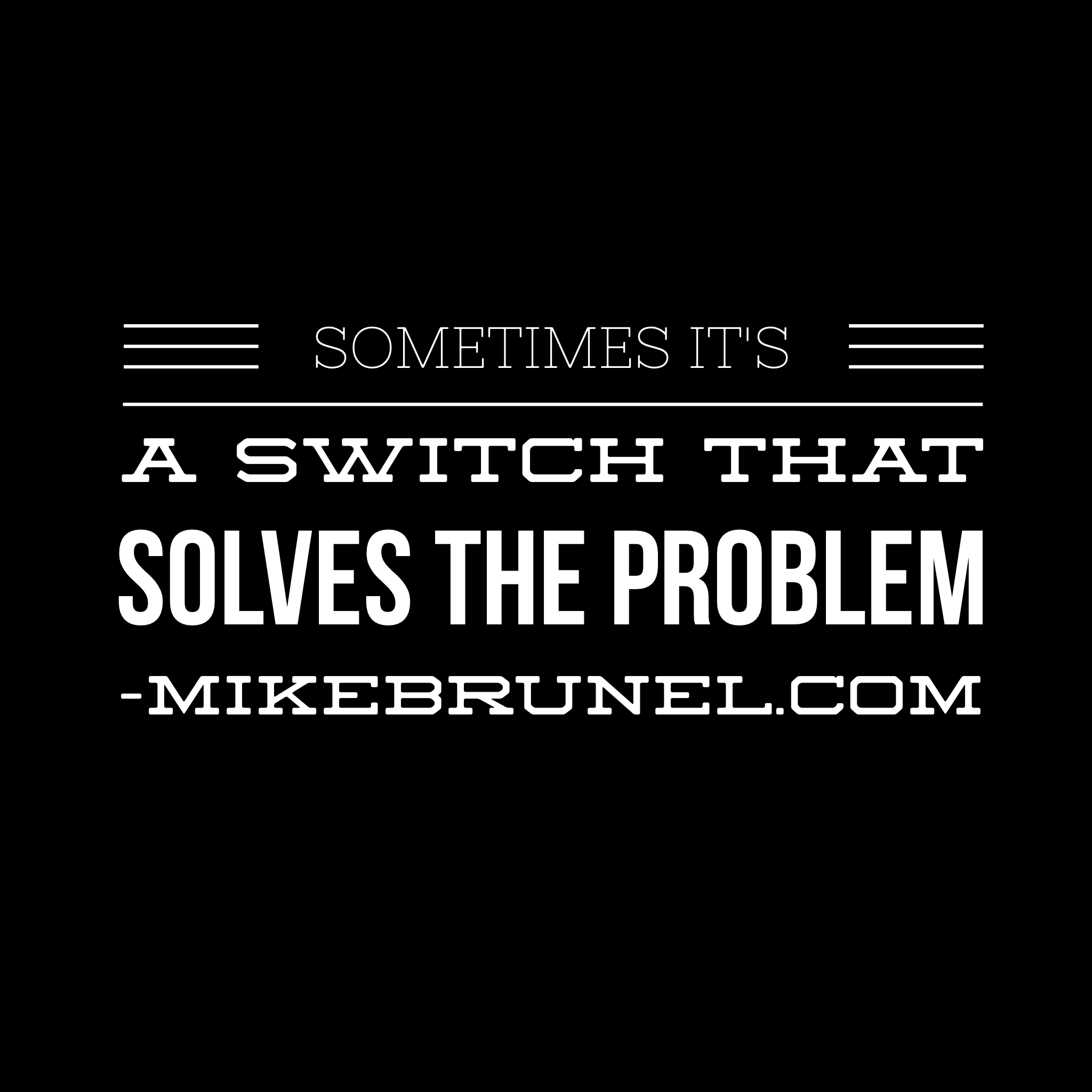
Reducing your business expenses is easier than you think
A leading manufacturing company based in Japan is said to have saved a quarter of a million dollars just by turning off the lights.
The company ran a competition with a reward asking people to answer this question:
How can we save money in our company without damaging, effecting or interrupting the day to day operation of the business?
It’s as simple as flicking a switch
The staff at the company embarked on a weeklong program in groups from senior management right down to the factory workers. Once the final entries were collated the prize went to one of the lowest paid workers.
Their suggestion was simple: turn all the lights out in the computer room and factory where automatic robots assembled parts for major components. The worker was awarded 20 percent of those first savings as their reward.
The solution is right in front of you
Sometimes the best solution to a problem was right in front of you the whole time. The answer doesn’t always need to be complicated and simpler is often better. Management doesn’t exclusively have the answers so put your problem to all your employee’s. You might be blown away by the responses from you lower-skilled departments.
Happy selling everyone!
Mike
About the Author:

Mike Brunel started Mikebrunel.com after being a successful entrepreneur and founder of NRS Media. He co-founded NRS Media in Wellington, New Zealand, expanded it into a global powerhouse in media sales and training, and was eventually responsible for opening offices in
London, Atlanta, Toronto, Sydney, Capetown, and Bogota.
His products and services are now sold in 23 countries and in 11 languages
generating $250 million annually in sales for his clients. Mike sold the company in 2015 and now spends his time following his passions which include rugby, travel. His promise: “I can find thousands of dollars in your business within minutes – GUARANTEED” TRY ME OUT!
by Mike Brunel | Aug 4, 2021 | Sales, Strategy
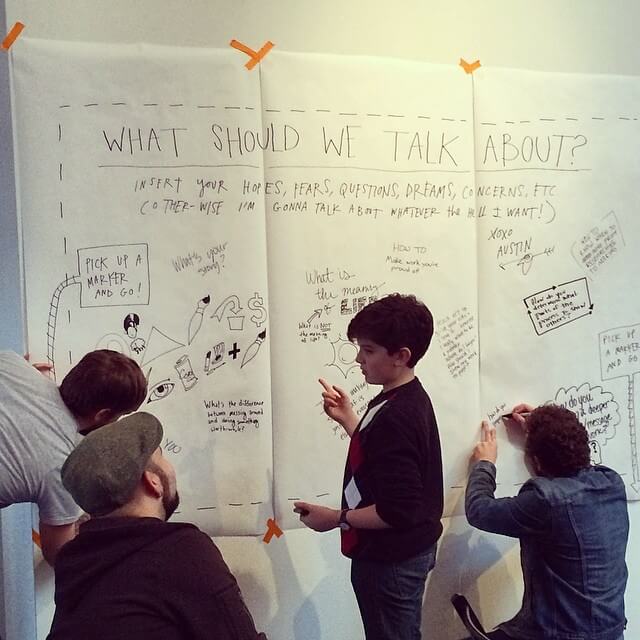
Photo – Austin Kleon- Steal like an Artist
“Are Sales are contingent upon the attitude of the salesperson? Or the attitude of the prospect”
I get to hear good stories from all over the world as to how salespeople are making a difference to people’s lives.
In many situations businesses worldwide are feeling (according to them) the pressure of not getting their numbers, the market is tough, it is not like it used to be, people are simply not buying like they used to, the excuses seem to go on and on.
I want to debunk that, it simply is not true. I know that if you offer value, and are committed to your customers, they will buy off you.
Money is still there.
The truth is that the money is always there, it may be less for some, but nonetheless, it is always there, it just moves around. It might move from your business to another, but the facts are that that retail revenue is up in countries like NZ and Australia.
It might move from your business to another, but the facts are that that retail revenue is up in countries like NZ and Australia.
The thing is that businesses have to do things differently; they need to think about how their clients are purchasing their product.
I can guarantee that in most homes these days television and other media is not the main source of entertainment or information.
The internet has become a big part of our lives.
Clients do research your product along with your competitors before they even venture into your store or place of business.
Information is Power.
Many business owners that I have worked with all over the world have had to come to terms with a changing market.
The ones I notice that are doing well train their staff on a regular basis, keep them up to date with all the new products or services, help them make the decisions, this is done usually at least once a week.
In any business product knowledge is based upon attitude, if you visit a store and a staff member does not know their product what happens?
You lose confidence, you are not really sure if they are to be trusted, you might retreat, and go off to someone else.
Want a secret to more Sales?
Product knowledge and information about a product have an invisible benefit. It gives the salesperson the “right attitude” it rubs off. They get confident, and the clients feel that confidence.
Try these simple exercises that work.
Here a just two exercises you can do in your business to get your team to buy into product knowledge training.
- POP QUIZ- write up 10 benefits of your most popular products, list what you think is the #1 benefit for the customer if they buy this product.
- TEST ONE ON ONE, OR IN A TEAM MEETING – Give each of your staff a test on every one of those products. You can do it in written form or as part of their one on one meeting.
These simple tests can give your business a foot up and you might get an extra share of the money that is out there.
Have a great day selling your stuff.
Mike
PS. If you want a simple test format to help you do that then download our 7 day Sales Mindset Challenge. Or if you need help to help your team make more sales or get more leads then contact me.
“Sales are contingent upon the attitude of the salesperson, not the attitude of the prospect” –William Clement Stone.
by Mike Brunel | Jul 27, 2021 | Sales, Uncategorized

All Systems Go- The Journey Begins.
In my last blog, I talked about Selling what you can’t see, and how Doug Gold, my business partner and previous owner of the More FM network came up with an idea to sell media inventory that went on to dominate the direct media sales world for well over 20 years.
After his first launch of the Gold Key Programme in Wellington New Zealand, we knew we were on to something special. The product and the problem had changed, as had our approach. Spots and Dot selling were out, and membership was in.
Looking back, it was revolutionary, no one was selling media this way. Subscription-based selling had been around for 50 years, now everyone thinks its the ‘new new thing”. All we did was apply that model to selling inventory on media companies.
I was initially invited into the company as a consultant, but when I saw what Doug had created, it was as if a light went on, I knew that if I could build a sales system that could duplicate the concept he was presenting in that room in a hotel in Wellington, I could leverage it.
I sat in on all the presentations as an observer for a week, watched how all the salespeople sold. I monitored how the clients bought. I recorded the presenter’s speeches and analyzed all the ways that they presented the product. Then I went away and created the first Image Plus programme. A predictable lead generation product that would pretty much guarantee a result. Then I took it to my partner who had just gone to Australia to set up our consultancy services, the wonderful Mr. Duffy.
I think we are onto something”
Brian Duffy trusted me to package it up and take it to a client of his in Hobart, Tasmania. I went in and said, “If you follow this system, I can write a million dollars in revenue for you guaranteed” We launched the program and generated $1 million in four days. In today’s money that’s around $4.5 million. Our cut was a commission fee on the revenue generated.
Boom! We were smoking! I remember at the time watching Brian writing on a small business card how many we had sold each session, after the third session, he came over to me and said. ” I think we are onto something, I count thirty gone of our allocated 100 memberships and its only day one, I’m excited”!
Success is Natural
People look at that success and assume it takes a team of natural salespeople to develop and execute such an idea; they don’t believe they can do it themselves. Granted, I have a passion for the business, but I came from a very small country where nobody was doing this sort of thing. We had some brave, courageous risk-takers as our first clients.
The early adopters in Hobart said, “Yeah, we’ll give it a go” and we were grateful. You may not think you are a salesperson, but if you are in any kind of business, you are just as much a salesperson as Doug, Brian, and me, and you can find clients willing to take the leap with you.
Practice Makes Perfect.
Of course, the journey that NRS Media took has not always been easy. I remember one time I was presenting near Lincoln, Nebraska, expecting 300 people to attend our seminar. Five turned up.
When something like that happens, all you want to do is hide. If you could, you would actually crawl in a hole, pull the cover over the top, and not come back out. Sometimes it seemed like I was on my own and the rebuffs were never-ending. I had a bit of natural resilience, but it really is a lonely place, selling in America is a tough gig. Many people avoid sales because they fear rejection.
Sell something you Believe in.
What you have to remember, though, is that if you are doing something you love, selling something you believe in, then you are performing a service. You are not ripping off the customer, or doing the wrong thing by them. Someone is going to buy it from you. As long as you remember that, you can lift your head back up and start again.
Take Flight from Fright
You should realize that most people don’t take naturally to selling. I often see people so frozen they’re afraid to pick up the phone. Folks freeze with fear, unable to make the call. They’re paralyzed with fright. Excuse my language, but they’re sh*$$!ng themselves because they’re so afraid of the reaction. Many people find selling terrifying; it’s a natural human reaction.The thing is, this fear comes through in their work and makes them less effective.
If you own a product, service, or a business, you have to sell. If you’re passionate, believe in that product, and know that your customer should have it, then don’t be afraid to go and present it.
Try not to think of it as asking a yes-or-no question. Instead, picture yourself helping the customer through the decision-making process. Simultaneously, you come to comprehend their needs, wants, and desires. If you can honestly say, “Look, this is my product. I believe in it. I think it’s right for you,” and you come from a position of integrity people will respond. All it takes is a shift in perspective. Stop thinking, “I’m not in sales.” Reframe that thought.
Call it Something Else.
Call it something else. Recognize it for the relationship building process it really is. Changing my mindset has helped me personally banish the fear of rejection. At first, I tried half-heartedly and then gave up, just like anyone else. I realized, though, that if I didn’t change the way I thought about sales, I was going to lose. Today, I help salespeople change their frame of mind so they’re working steadily toward a reward rather than flailing about trying to avoid failure.
I remember working with a new salesperson on this issue. He was seriously afraid of going out and talking to people, so we gave him some new words to practice just before the sales call.
We asked him to say “relationship building” instead of “selling” in his mind and we saw right away the fresh connections he was making. His new vocabulary changed his mindset. He was much more comfortable—and successful—in his calls after he implemented this simple tool.
Successful sales also means maintaining relationships with clients over a long time period without getting the payoff of a “yes.” In the early days of my business, I remember approaching clients who would say no three, four, or five times. I considered that a failure. I thought, “Well, I just can’t do it.”
What did I learn?
Successful sales also mean maintaining relationships with clients over a long time period without getting the payoff of a “yes.” In the early days of my business, I remember approaching clients who would say no three, four, or five times. I considered that a failure. I thought, “Well, I just can’t-do it.”
What I discovered, though, was that I had to see rejection as a temporary setback and make plans to move on. I had to say to myself, “Okay, Mike, what did you learn and what could you do differently? Could you apply a different approach to that problem? Let’s try it and see what happens then.”
If you want to build leverage into your business like we did, then let’s talk.
Selling is easy “it’s just how you think about it”
Mike
PS. Not ready for a catch-up call then dive into my ‘new’ just-released audio programme
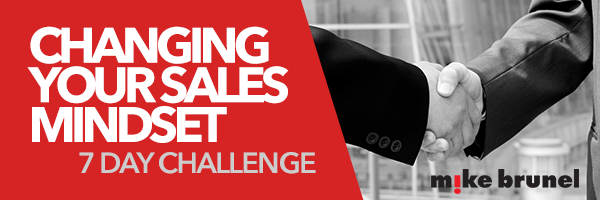
by Mike Brunel | Jul 11, 2021 | Leadership, Sales

What makes great sales people great? The common misconceptions about salespeople can be tough to get over because they are so ingrained in our culture. It helps to see what successful salespeople actually look like. Most of the great salespeople aren’t all that slick on the surface, but they are great at discovering and solving problems. What makes them different?
I think there are 11 traits that make a successful salesperson here a 7 from my book.
Beliefs, Traits, and Habits of the Best Salespeople:
Desire. The desire to be successful is the number one feature of excellent salespeople. Folks with a strong drive to succeed usually have built upon a history of success.
They may have been good at sports, or bringing up a family.
They know what it means to care deeply about the goal and really go for it.
Desire leads them to find out everything they can about their product and their competitor’s product. In fact, their knowledge is one of their strongest assets.
Motivated salespeople will compete against themselves, not others. They strive to beat their own last target, cultivate additional clients, and achieve business.
2. Self Belief. Effective business people have a very strong self-belief. When they experience rejection, they understand that it is situational. A single loss does little or damage to their core self-esteem.
Instead of getting down on themselves, people with high self-esteem draw on all their knowledge and past mistakes to correct their course and move on.
Anyone in sales can achieve strong self-belief by developing a passion about their product or service. If you can turn your passion for your business into a core belief, you can sell your product to anyone. That is a sales mindset guarantee.
3. Persistence. Persistent folks do not give up easily, if ever. They see problems not as dead ends, but surmountable obstacles. How many rejections can you weather?
Numbers coming out of the Dartnell Corp. in the United States show that a sale in today’s market often goes through only after the tenth “No.” You read that right. The tenth “No.” We are up against a tough economic environment, and unless we are persistent and believe in what we sell, we will give up after about the third time someone tells us “No.”
Learn when to back off and not overplay the persistence card, but do not ever roll over and give up. In this brave new world where the power is increasingly in the hands of the buyer, we have to create marketing and sales strategies to overcome our reluctance to try one more time.
4. Purpose. Many great salespeople find greater purpose in their work than simply completing the job at hand. They might want to help their clients, fellow workers, and teammates build a great business environment to work in, or they may find value in training others by passing on their knowledge to employees.
Motivations can be as basic as feeding the family, affording that extra vacation, or getting the kids through college.
To folks invested in these kinds of outcomes, money and success are by-products of the efforts they make.
This is an important distinction, for finding meaning in your work will keep you balanced in your business. Work cannot be your sole purpose.
We hear too many stories about business people burning out by dedicating themselves solely to their businesses, day in and day out. In the long run, this approach provides diminishing returns. Remember why you are working so hard.
5. Goal Orientation. The best salespeople are people who set real, attainable goals, weekly, monthly, and annually. They measure everything they do, and believe strongly in revisiting and setting new goals all the time, not just once a year
A goal might be as simple as beating the business turnover from last year, or building some training and sales goals in the company for the next six months. Many people I work with struggle with goal setting. I advocate aligning your goals with the problems you are trying to solve.
6. Accountability. Great salespeople do not participate in what we call “the chicken run.” The “chicken run” happens when the salesperson disappears from the buyer’s sight as soon as the deal is sealed.
Successful salespeople never seal the deal and then fail to follow up with service.
If the product does not work, they are not too “chicken” to go back and make it right. If things do not work out well for the client, they know they need to jump back in there and help the client realize his or her expectations.
These folks always work it out and fix the problems that come up.
7. Willingness to Learn. Strong salespeople seek help and guidance from people they admire and trust.
They may work with a coach, confide in a colleague, or consult a manager. They need someone they can feel comfortable with so they can talk through their fears and doubts.
Take The Sales Mindset Challenge here and discover how you rate with your sales mindset you might be surprised. Its a simple list of questions that rate your beliefs and traits. Have fun.
Good Selling.
P. S. Are You Utilizing The Most Profitable, Up-To-Date AND Proven Sales Lessons To Grow Your Business Right Now, In Today’s Market?
Changing your Sales Mindset coming soon.

by Mike Brunel | Jul 6, 2021 | Sales
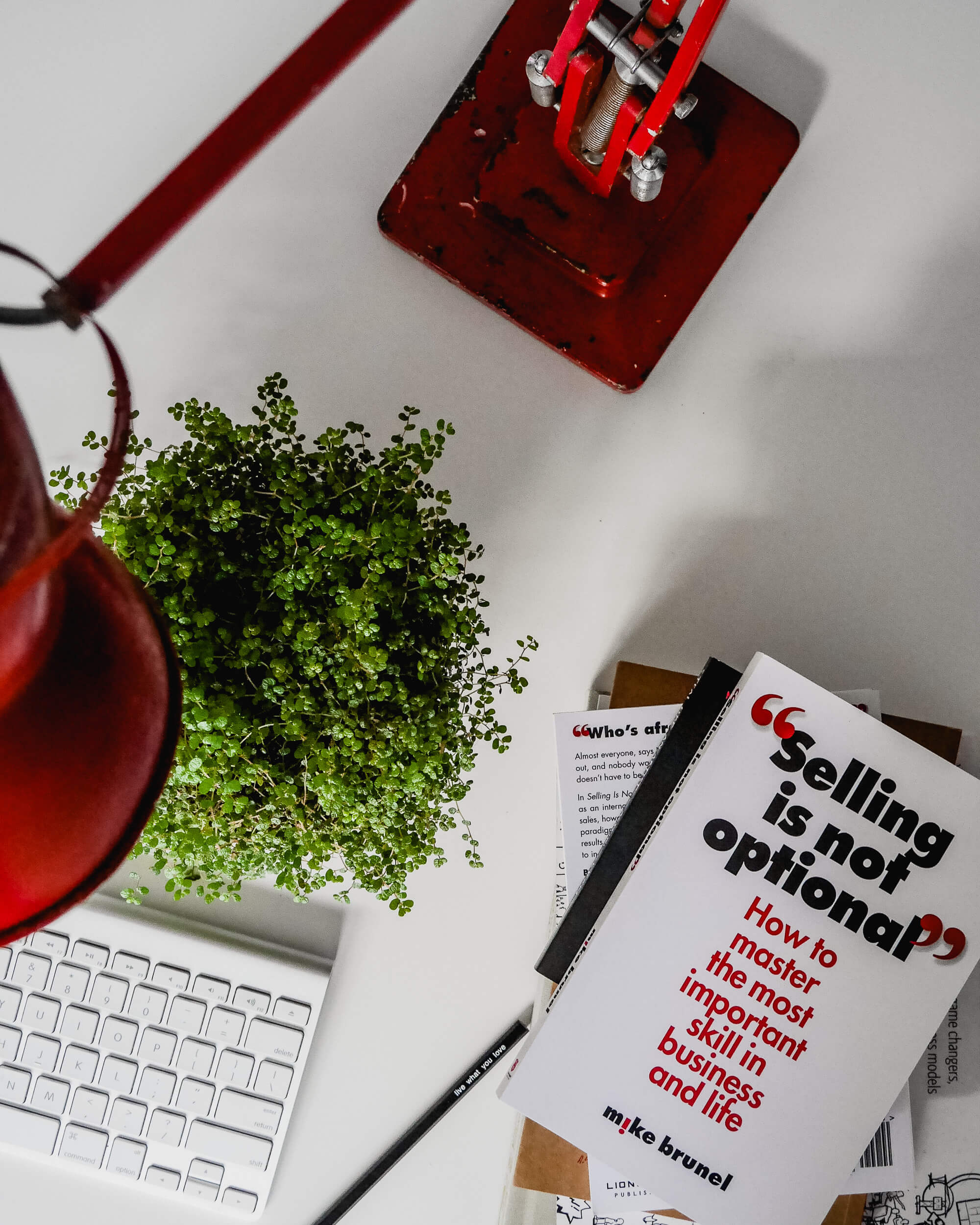
The Best Salesman I Ever Met … Wasn’t a Salesman. Do you think you know what a successful salesperson looks like? Are you picturing an expensive suit, a flashy smile, and a smooth, practiced pitch? That’s what we imagine when we think of sales, but the truth is that some of the best salespeople aren’t like this at all. In fact, the best salesman I ever met wasn’t intending to be a salesman at all; he was a mountain climber!
Before I tell you about this reluctant, yet remarkable, salesman, let’s look at another ordinary guy who turned out to have great success in sales. His name? Mike Brunel.
Humble Beginnings
My first job did not look at all like a sales job, but it was. I was a roustabout, or shearing hand, in a shearing gang. It was good job for a New Zealand teenager. I learned loads from the shearers—huge, uncompromising men with incredible mental stamina and fortitude.
A professional shearer can shear a sheep in under two minutes, removing the fleece in one piece. My job was to quickly pick up the fleece, throw it over a table like a blanket, and inspect it for maggots. When I heard the shearer yell “maggots!” it was my responsibility to remove the critters. I am still trying to forget the squirmy sensation of maggots running up my arm. I don’t recommend it.
The shearing job was all about speed, as shearers back then were paid $35 per hundred sheep shorn. Speed was crucial: shearing a flock took two minutes per sheep, completed in one-hour stints, eight hours a day, four to five days a week. They made hundreds of dollars a day, yet any interruption cost money and time.
Therefore, the shearer needed me to be an integral part of his team. I needed to be listening, working with the others, understanding their motivations and quirks, knowing when to back off, and recognizing when to invite conversation. Right there, on the sheep farm, I used the same skills as any successful salesperson.
We are all in the business of sales.
From my experience as a teenager, I learned that people interact with people they like. People buy people. Learning these skills is not difficult. The basics: know your goals, listen well, understand your audience, and expand the relationship with that audience.
The word “sales” is often thought of as a dirty word. Successful business owners rush to assure me that they are “not in sales.” They are, though. Salespeople should not be ashamed of their role. Sales skills are something everyone can, and must, learn to be effective in any industry.
Since my roustabout days, I have accumulated a lifetime of learning about sales. For over thirty years, I have made money selling services including sales training, marketing, and sales promotion. I built a business from nothing into a multimillion-dollar international consultancy with sales in excess of $300 million, serving over 400 clients annually.
The bottom line: I know sales. I can help you generate more sales for your organization by teaching you how to approach your client the right way, and how to ask for—and get—their commitment.
Small Changes, Big Results
Out-of-the-box thinking about sales served me well when I started out selling media. Media is an unusual thing to sell. Not only is airtime an intangible product, it is also a time-limited commodity. If you don’t sell that 6:00 am commercial slot on your New York station, it is gone forever. Selling seats on airplanes is the closest analogy. If that seat beside you is not sold once an airplane takes flight, it will never be sold. The same principle applies to media, especially radio and television. “Here today, gone tomorrow” was a real problem for radio stations. We used to ask radio advertising executives, “What unsold airtime have you got and what can we do to package that up and sell it?”
Media companies sell out, on average, only about 70% of their airtime. We solved that problem by building a seminar-selling program that presold 30% of radio airtime. We would say to the media people, “We’ll show your sales team how to presell 30% of your inventory. We will help you build a database and then invite all the advertisers from the database to a seminar where we present the benefits of buying the media. After that, we make them an offer: they can buy a twelve-month advertising contract at an exceptionally good price, but they have to make the decision on the spot because you only have 30% allocated.” The first media company that we used this technique with was one of our partners. We sold a million dollars in six weeks.
If I could learn how to build a global company from a little place called New Zealand, anyone can do it. Eventually we had offices in Atlanta, Toronto, Sydney, and the United Kingdom. New Zealand is a very small country, but we actually changed the way that media sales companies sold their inventory worldwide. No one else was doing it this way before us.
I harbor a deep passion for this business, and I struggle when I come up against businesspeople who reject the word sales. They freak out. They say, “Oh my, God, I’m not a salesperson.” I reply, “Yes you are. Let me show you how.”
To The Top of the World
You may suspect I just got lucky. Maybe only a certain type of person can expect this kind of good fortune.
Remember that mountain climber I mentioned earlier, though? His name was Rob Hall, and he was an athlete, not a businessperson. Yet, he made one of the most memorable—and successful—sales pitches I ever heard.
Picture the scene. It was a blistering hot summer’s day in 1990 and two men were pacing up and down in a small conference room, one dressed in a suit and the other one in full climbing gear.
We were nervous, frightened, and excited. Just a few feet away sat several key executives from one of the biggest multi-national companies—Unilever—waiting to make a decision: would they sponsor Rob Hall in his quest to conquer Mount Everest? These guys were holding Rob’s future in their hands. Rob was one of our country’s finest mountaineers; he wanted to be the first New Zealander since Edmund Hillary to reach the top of Mount Everest.
To make that happen, Rob needed money. He required at least $300,000 before he could take a single step. Even though asking for funding didn’t come naturally to this outdoorsman, there he sat, ready to make his pitch.
Rob’s unique idea was take an expedition—three climbers including the son of Edmund Hillary, his son Peter, and another great climber named Gary Hall—to the top of Mount Everest. They also wanted to take one hundred children with them to help clean up the base camp. The base camp looked like a litterbin; climbers dump trashcans and rubbish there when they stop to rest before heading to the peak.
Rob approached my media company with an intriguing idea. He wanted to broadcast live back to our network of radio stations on his way to the top of Mount Everest. He would report back via satellite phone, which at the time were quite innovative.
That is why we were sitting in that conference room and Rob was in his rain pants, with ropes around his shoulder and his ice ax in one hand. I had asked him to do something different to make his case and he rolled with it. We knew we only had one shot.
Rob’s presentation was infectious. As Rob walked into the boardroom—six foot five, sporting a giant beard—all the executives from Unilever opened their eyes a little wider. I spoke first, while they sat and wondered what this mountain man was going to say. I talked about the commercial support an event like this would offer an advertiser like Unilever. I remember shaking, I was so nervous, but I had to present the concept: we would invite Unilever’s Coldwater Surf washing powder brand to sponsor the climb to the mountaintop. One hundred schoolchildren would come along to rejuvenate the base of the mountain. The cleanup hook was a strong match for the brand. We wanted to call it the Coldwater Surf Everest Challenge.
I introduced the idea, and then Rob got up. He nailed it.
He told them why he wanted to take these men to the mountain, why he wanted to be the first New Zealander to climb Mount Everest since Edmund Hillary, and why he needed sponsorship money. He described how he would climb the mountain and how he would teach the children the importance of looking after the environment. As his presentation warmed up, the body language in the room shifted; the executives were enjoying the show. Finally, Rob picked up his ice axe and banged it on the table—not too loudly, though I think they got a bit of a start.
“See this ice axe?” he asked. “I’m going to take that to the top of Mount Everest and when I come back, you can have it. You can put it in the boardroom.”
A couple of things about this presentation resonated. First, Rob’s appearance was unique. Second, his enthusiasm and knowledge were crystal clear. He shared a wealth of information and enthusiastically expressed his passion for the plan. He was great at selling because even though he was a reluctant salesman, his commitment to the project shone through.
Rob got the deal. His commitment paid off handsomely, and didn’t end with the sponsorship. Afterward, he built a strong relationship with that company, which opened up other opportunities. He asked himself, “Why should this client choose to invest over a quarter million dollars in sponsorship money for a mountain climber?” and he answered the question convincingly.
There was no sleazy sales team. It was just Rob being real and it was a huge success.
What did Unilever really buy from Rob Hall and me? More than advertising, they bought an experience. The top of Mount Everest is a very, very unfriendly place, but it is human nature to go to those places. Rob wanted to take every radio listener into the wilderness with him. What Unilever bought was that unique intrigue. Ultimately, they bought it because they liked Rob and they wanted to add some value to the world.
Hitting the Trail
What can we learn about selling from Rob’s story? He wasn’t a salesperson at heart, but he could motivate a buyer on the basis of his knowledge. Even though Rob was reluctant to be in the sales arena, he totally committed to the process. Many people aren’t willing to make that kind of promise because they’re turned off or intimidated by selling. Mastering selling requires only what Rob Hall had—expert knowledge of his product and a strong belief in it.
Although Rob’s story has a sad ending—he died saving a client during another Mount Everest climb—he died doing what he loved. To this day, I remember his passion, his commitment, and his ability to make things happen.
If a mountain man like Rob can do it, you can do it. This book is all about mastering the selling journey and understanding the buying journey. Let’s get on the path to success.
If you like that story, there are heaps more in my book with real live examples and tips you can use in your business.
Or why don’t you download a FREE chapter of my book right now!
Just a the bottom of this page download the rest of the story about Rob and other adventures.
If you want to overcome your fear of selling then email your details and we can set up a FREE session to answer some of your questions around sales.
In the meantime, good selling.
Have a great week…
Mike
by Mike Brunel | Jun 22, 2021 | Negotiation, Sales
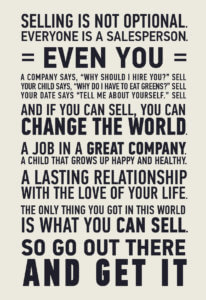
Negotiation is a form of Selling True or False?
We all know that Negotiation is a form of selling, and our ultimate goal is that everybody wins. Impossible, right? Maybe not. In my book Selling is Not Optional- How to Master the most important skill in business and life I devote a whole chapter to negotiation.
Mutual Success
In the chapter I stress the goal of mutual success for both the buyer and seller. Often, we think negotiations can only succeed one way: we present the product, say all the right things, and get the client really excited about buying. Then we ask for the business and they jump across the desk and hug us, saying, “You saved my life.” Right?
It simply doesn’t happen that way.
What’s your fear?
Often, salespeople don’t even ask for the business for fear of rejection. They are afraid to hear, “No, not at the moment,” or, “I want to negotiate.”
As we have seen from other chapters in the book , mindset makes a difference; you have to be open to the next step. Often, after someone does decide to purchase, they still want to parry a little. People feel it is a bit of a game.
We are all in the game of negotiation. I left the house this morning negotiating with my wife about a couple of things. We negotiate with our partners and our fellow workers, and I can tell you as a parent of teenagers, we negotiate with our children.
Salespeople should avoid cultivating a closed mindset around bargaining. Negotiations are just a form of communication. Consider how negotiations can get you closer to finding a mutually beneficial solution.
A Beautiful Mindset.
Think of the John Nash story, told in the movie A Beautiful Mind. Nash, an American mathematician, proved that when you cooperate, everybody wins, and wins bigger. Game theory demonstrates that cooperation can increase each player’s ultimate reward. Having a collaborative mindset is actually the key to successful negotiation.
Here are some takeaways from my book on the subject of negotiation. (link)
- Plan your negotiation approach. Have a checklist. Don’t forget your agreement.
- There are often only a few standard areas of concerns for your clients.
- Keep your sense of humour.
For additional tips on selling your product or service go to mikebrunel.com. Look forward to seeing you soon.
Good Selling
Mike Brunel









